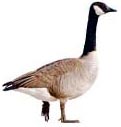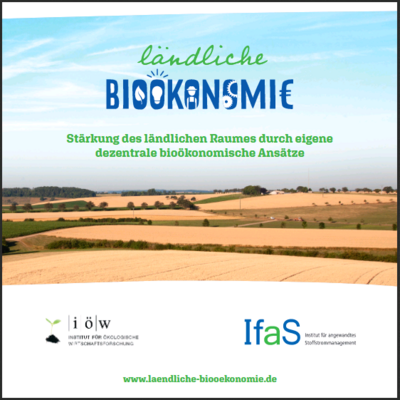Rural Bio-Economy Strengthening rural areas through decentralized bioeconomic approaches
Rural areas are facing major challenges, land-use and land-use demands are changing. The bio-economy offers opportunities for the further development and adaptability of rural regions in Germany: The material and energetic utilization of biomass enables a variety of options for added value and employment. The brochure "Rural Bio-economy - Strengthening Rural Areas through Decentralized Bio-economic Approaches", published by the Institute for Applied Material Flow Management (IfaS) and the Institute for Ecological Economy Research (IÖW), shows how rural regions can profit from a bio-economy and how it can be translated into successful business models.
The brochure provides stakeholders from agriculture and forestry, businesses and public sector representatives an insight into how rural regions can benefit from the bio-economy potential. For this purpose, rural areas must be more than just suppliers of raw materials, when designing bio-economic value chains. The result is a rural bio-economy that links existing and new economic structures in the field of primary and secondary processing of regionally available biomass with agricultural and forestry production. The brochure presents successful practical examples, for instance for paper from hay, for substitutes for wood-based materials made from fermentation residues as well as for natural insulating materials based on hemp.



